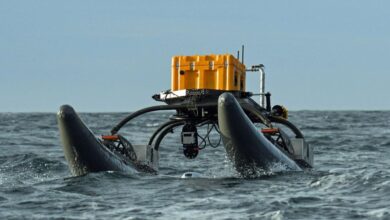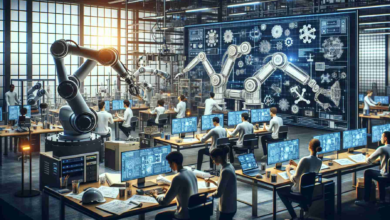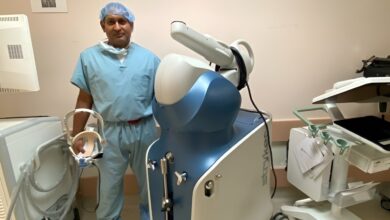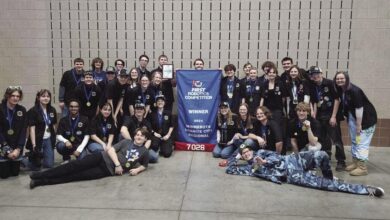The Mixed Reactions to High-Tech Service
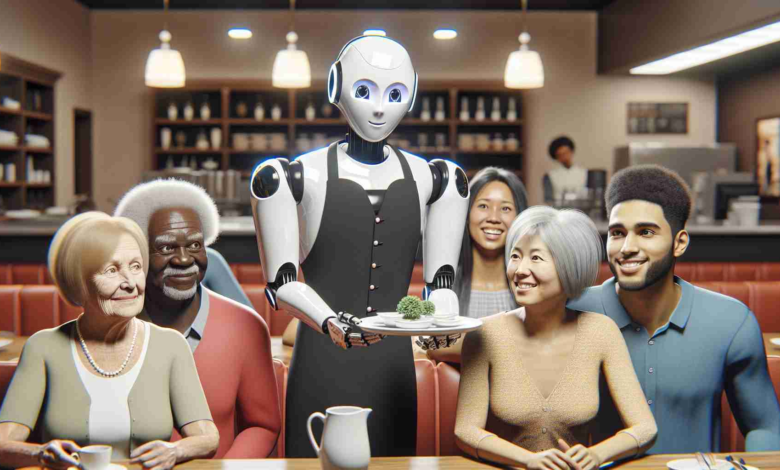
The hospitality industry is increasingly turning to technology to address labor shortages, and a robot server known as Rosie is at the forefront of this trend, drawing both smiles from patrons and concern from staff. According to a recent report by Itay Hod, this shift towards automation has garnered mixed reactions within the restaurant scene.
Summary: As restaurants struggle to staff their service teams, robotic helpers like Rosie have begun to emerge, reshuffling the dynamics of the dining experience. These robots are designed to alleviate staffing challenges and entertain customers, but their presence also raises questions and apprehensions among human employees who worry about job security and the impersonal aspect of dining.
Itay Hod’s report underscores a dual impact of these technological interventions – while customers are often delighted by the novelty and efficiency of being served by robots, the restaurant workers express a sense of unease over their future in the industry. The introduction of such robots has become a symbol of the inevitable push towards a more automated future in various sectors, especially in services that were traditionally human-centric.
This evolution in the restaurant industry, exemplified by Rosie the robotic server, presents a fascinating case study on how technology is becoming an integral part of customer service. However, it also sparks a necessary debate on the balance between innovation and the preservation of human employment, suggesting that the narrative of automation is as complex as it is inevitable.
Increasing Use of Technology in the Hospitality Industry
The hospitality industry has seen a significant shift towards the adoption of technology to address issues such as labor shortages. Robotic servers, like Rosie, represent a cutting-edge solution that blends the potential for increased efficiency with the charm and novelty of advanced robotics. A report by Itay Hod highlights the transformative effects of such technology on the restaurant business, signaling changes that extend well beyond the dining room.
Market Forecasts for Robotics in Hospitality
As with many sectors, the restaurant and broader hospitality industry are increasingly integrating automation into their operations. Market forecasts suggest that the global market for service and hospitality robots is expected to grow exponentially in the coming years. This growth is driven by a number of factors, including labor cost savings, the desire to enhance customer experience, and the ability to provide consistent service, particularly during peak times or staff shortages.
The integration of robotics in the hospitality industry is not without its challenges. Key issues include the high initial investment costs for robotic systems, ongoing maintenance requirements, and the potential impact on employment. There is also debate around how the customer experience is altered by the presence of robots, as service in hospitality is traditionally centered around human interactions and personal touch.
Despite these concerns, the industry appears to be on a steady path toward greater automation. Hospitality businesses must navigate these changes carefully, considering both the efficiency gains and the potential impact on their brand and customer satisfaction.
Discussion Surrounding Automation and Employment
The introduction of robotic servers like Rosie touches upon a complex and sensitive topic: the potential displacement of human workers by machines. Workers in the hospitality industry, especially those in customer-facing roles, have concerns about what increased automation could mean for their job security and the interpersonal aspects of their work. It’s a topic that’s being debated not just in hospitality but across many industries facing similar technological shifts.
Employers and policymakers alike are called upon to consider how to manage the transition to a more automated workplace. This includes addressing the skills gap by providing training for employees to work alongside or manage new technological systems and considering the broader implications for the workforce.
For those interested in learning more about technological advancements and market trends related to the hospitality industry and service robotics, reputable sources include:
– McKinsey & Company
– PwC (PricewaterhouseCoopers)
– IBM
These domains provide valuable insights into industry developments, market analysis, and the effect of technological innovations on various sectors. By exploring the current landscape and projected trends, stakeholders can better prepare for and navigate the dynamic interplay between human labor and robotic automation within the hospitality industry and beyond.

Igor Nowacki is a fictional author known for his imaginative insights into futuristic technology and speculative science. His writings often explore the boundaries of reality, blending fact with fantasy to envision groundbreaking inventions. Nowacki’s work is celebrated for its creativity and ability to inspire readers to think beyond the limits of current technology, imagining a world where the impossible becomes possible. His articles are a blend of science fiction and visionary tech predictions.
